Giant Turtle-Shaped Rock Wangsan, Korea – One Of The Strongest Sources Of “ki”
A. Sutherland - AncientPages.com - On the slopes of Wangsan, one of the peaks in the Jirisan that is one of the three most important mountains in South Korea, you can find a gigantic turtle-shaped rock weighing 127 tons.
Its giant shell is carved with ornate designs.
It rests flat against the mountainside and is said to be one of the strongest sources of “ki” – the non-physical energy that animates all living things, everything that is alive including plants, animals, and humans.
One of the strongest sources of “ki” – the non-physical energy that animates all living things, everything that is alive including plants, animals and humans.
A great deal of mythology exists in regard to the turtle, a powerful animal, which was considered the ruler over the insects.
Because turtles live longer than other animals, they symbolize longevity and the turtle is still Asia’s symbol for longevity. Creation is associated with the tortoise and it is also believed that the tortoise bears the burden of the whole world.
It is a symbol of wisdom and knowledge and is able to defend itself on its own. It personifies water, the moon, the Earth, time, immortality, and fertility. Moreover, it symbolizes steadfastness and tranquility in religion, mythology, and folklore from around the world.
Especially under the influence of Taoism, the turtle shell is the symbol of heaven, and the flat square underside the symbol of earth.
According to ancient beliefs in the Far East, the turtle carries the world on its back, and its magic united heaven and earth.
It is also the symbol of fertility, vitality, and great patience.
People believed that turtles had the power to predict the future. Fortune tellers used the shape of a turtle’s shell to forecast the future. Turtle images often form the base of steles or monuments to famous people, especially Buddhism monks.
Written by – A. Sutherland - AncientPages.com Senior Staff Writer
Copyright © AncientPages.com All rights reserved. This material may not be published, broadcast, rewritten or redistributed in whole or part without the express written permission of AncientPages.com
Expand for referencesReferences:
Julian F. Pas, Historical Dictionary of Taoism
More From Ancient Pages
-
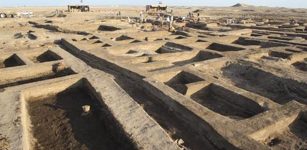 Remains of Santorini Volcanic Eruption Discovered West Of Suez Canal
Archaeology | Jan 3, 2016
Remains of Santorini Volcanic Eruption Discovered West Of Suez Canal
Archaeology | Jan 3, 2016 -
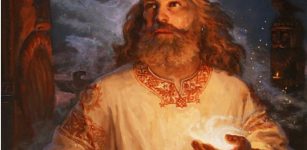 Svarog: God Of Cosmic Fire And Ruler Of The Sky In Pre-Christian Slavic Pantheon
Featured Stories | Aug 15, 2017
Svarog: God Of Cosmic Fire And Ruler Of The Sky In Pre-Christian Slavic Pantheon
Featured Stories | Aug 15, 2017 -
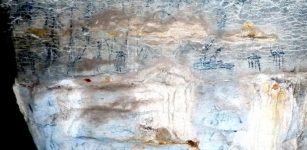 Madagascar Cave Art Hints At Ancient Connections Between Africa And Asia
Featured Stories | Dec 18, 2023
Madagascar Cave Art Hints At Ancient Connections Between Africa And Asia
Featured Stories | Dec 18, 2023 -
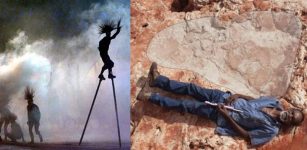 Aboriginal Creation Story Of Marala Was True – World’s Largest Dinosaur Footprints Confirm Ancient Creation Myth
Archaeology | Mar 29, 2017
Aboriginal Creation Story Of Marala Was True – World’s Largest Dinosaur Footprints Confirm Ancient Creation Myth
Archaeology | Mar 29, 2017 -
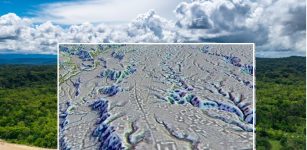 LIDAR Discovers Lost Ancient Cities Older Than Any Known Complex Amazonian Society
Archaeology | Jan 12, 2024
LIDAR Discovers Lost Ancient Cities Older Than Any Known Complex Amazonian Society
Archaeology | Jan 12, 2024 -
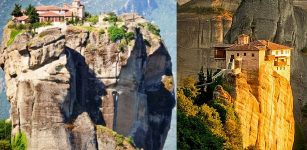 Meteora – A Sanctuary Of Harmony And Quietness “Hanging” In The Sky
Civilizations | Aug 14, 2015
Meteora – A Sanctuary Of Harmony And Quietness “Hanging” In The Sky
Civilizations | Aug 14, 2015 -
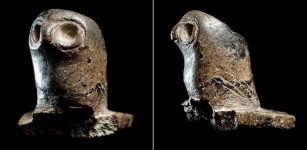 Enigmatic 2,000 -Years-Old Carved Stone Owl Pipes – An Ancient Unsolved Secret Of Illinois
Artifacts | Oct 4, 2018
Enigmatic 2,000 -Years-Old Carved Stone Owl Pipes – An Ancient Unsolved Secret Of Illinois
Artifacts | Oct 4, 2018 -
 Major Discovery Reveals Neanderthals In Italy Engaged In Plant Food Processing
Evolution | Jun 29, 2023
Major Discovery Reveals Neanderthals In Italy Engaged In Plant Food Processing
Evolution | Jun 29, 2023 -
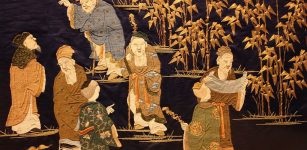 Mystery Of The Seven Sages In Ancient Myths And Legends
Featured Stories | Feb 20, 2016
Mystery Of The Seven Sages In Ancient Myths And Legends
Featured Stories | Feb 20, 2016 -
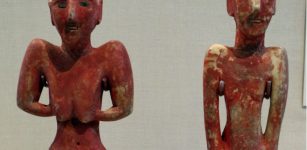 Male-Female Roles 7,000 Years Ago Were Less Traditional Than Previously Thought – New Study Reveals
Archaeology | Jun 30, 2022
Male-Female Roles 7,000 Years Ago Were Less Traditional Than Previously Thought – New Study Reveals
Archaeology | Jun 30, 2022 -
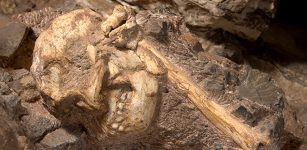 3.6 Million-Year-Old Rare Skeleton Of Human Ancestor Revealed By Researchers In South Africa
Archaeology | Dec 7, 2017
3.6 Million-Year-Old Rare Skeleton Of Human Ancestor Revealed By Researchers In South Africa
Archaeology | Dec 7, 2017 -
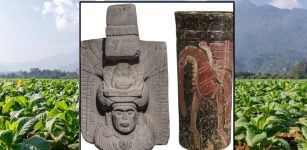 Ancient Mesoamericans Drank Tobacco In Healing Rituals – Ceramic Vases From Cotzumalhuapa, Guatemala Reveal
Archaeology | Mar 6, 2024
Ancient Mesoamericans Drank Tobacco In Healing Rituals – Ceramic Vases From Cotzumalhuapa, Guatemala Reveal
Archaeology | Mar 6, 2024 -
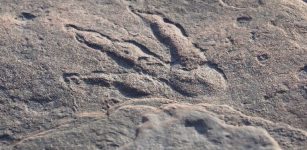 220 Million-Year-Old Dinosaur Footprint Found On Wales Beach By Girl
Fossils | Feb 1, 2021
220 Million-Year-Old Dinosaur Footprint Found On Wales Beach By Girl
Fossils | Feb 1, 2021 -
 Extraordinary Biblical Frescos Uncovered In Domitilla Catacombs
Archaeology | Jun 3, 2017
Extraordinary Biblical Frescos Uncovered In Domitilla Catacombs
Archaeology | Jun 3, 2017 -
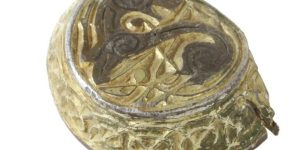 Strange 1,200-Year-Old Anglo-Saxon Artifact Used For Unknown Purpose Found In Norfolk, UK
Archaeology | Jan 18, 2024
Strange 1,200-Year-Old Anglo-Saxon Artifact Used For Unknown Purpose Found In Norfolk, UK
Archaeology | Jan 18, 2024 -
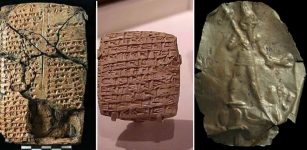 Kültepe: Once Part Of The Kingdom Of Hittites And The Center of a complex network of Assyrian trade colonies in the 2nd millennium B.C.
Civilizations | Oct 16, 2015
Kültepe: Once Part Of The Kingdom Of Hittites And The Center of a complex network of Assyrian trade colonies in the 2nd millennium B.C.
Civilizations | Oct 16, 2015 -
 Message In A Bottle Thrown Overboard In Germany 132 Years Ago Was Found In Australia
Archaeology | Mar 8, 2018
Message In A Bottle Thrown Overboard In Germany 132 Years Ago Was Found In Australia
Archaeology | Mar 8, 2018 -
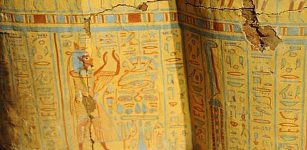 2,700-Year-Old Sarcophagus Of ‘High Priest Of God Amun’ Discovered In Luxor
Archaeology | Nov 27, 2015
2,700-Year-Old Sarcophagus Of ‘High Priest Of God Amun’ Discovered In Luxor
Archaeology | Nov 27, 2015 -
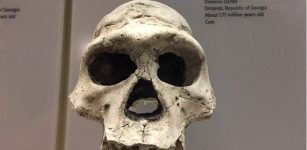 What Does The Brain Of The Homo Erectus Fossil With The Lowest Cranial Capacity Tell About Evolution?
Archaeology | Mar 2, 2023
What Does The Brain Of The Homo Erectus Fossil With The Lowest Cranial Capacity Tell About Evolution?
Archaeology | Mar 2, 2023 -
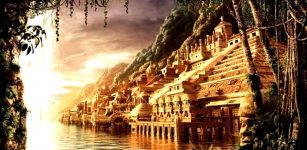 Paititi: Legendary Lost Inca City Of Gold Built By The Inca Hero Inkarri
Featured Stories | Mar 16, 2016
Paititi: Legendary Lost Inca City Of Gold Built By The Inca Hero Inkarri
Featured Stories | Mar 16, 2016

